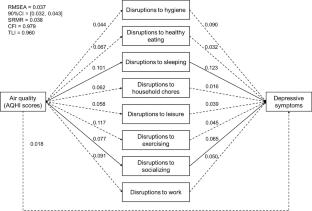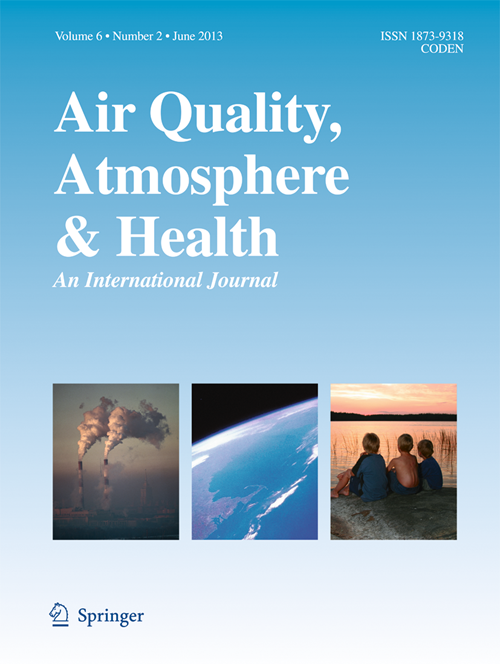Air quality and mental health amid COVID-19: a prospective population-based analysis of the mediating role of daily routine disruptions
Abstract
Previous evidence consistently demonstrated a robust positive association between poor air quality and common psychiatric symptoms of depression and anxiety. This relationship was exacerbated by potentially traumatic events such as the recent COVID-19 pandemic. Daily routine disruptions could aggravate the impact of poor air quality on psychiatric symptoms. This study aims to investigate the positive links between poor air quality and depressive and anxiety symptoms and the mediating effects of daily routine disruptions on the associations in a population-representative cohort in Hong Kong amid the COVID-19 pandemic. A territory-wide cohort study of a population-representative sample of 1333 Hong Kong Chinese respondents was conducted to assess daily routine disruptions from March to August 2021 (T1) using the Sustainability of Living Inventory. Depressive and anxiety symptoms were measured at two time points: T1 and again from October 2021 to February 2022 (T2) using the 9-item Patient Health Questionnaire and the General Anxiety Disorder-7, respectively. Air Quality Health Index scores (AQHI) were obtained from the government database at T1. Path analysis examined the hypothesized indirect effect of T1 AQHI on T2 psychiatric symptoms via T1 daily routine disruptions, controlling for the effects of demographic and environmental covariates. Path analyses revealed that disruptions to sleep and socializing at T1 fully mediated the positive association between T1 AQHI and T2 depressive symptoms, whereas T1 disruptions to healthy eating, sleep, socializing, and exercising fully mediated the positive association between T1 AQHI and T2 anxiety symptoms. The current findings suggest that people could be oblivious to changes in air quality, but they increase psychiatric symptoms in the population by disrupting the regularity of daily routines. Regularizing daily routines could offer an easy and scalable approach for improving population mental health in urban areas in the face of increasing climate change burdens.


 求助内容:
求助内容: 应助结果提醒方式:
应助结果提醒方式:


